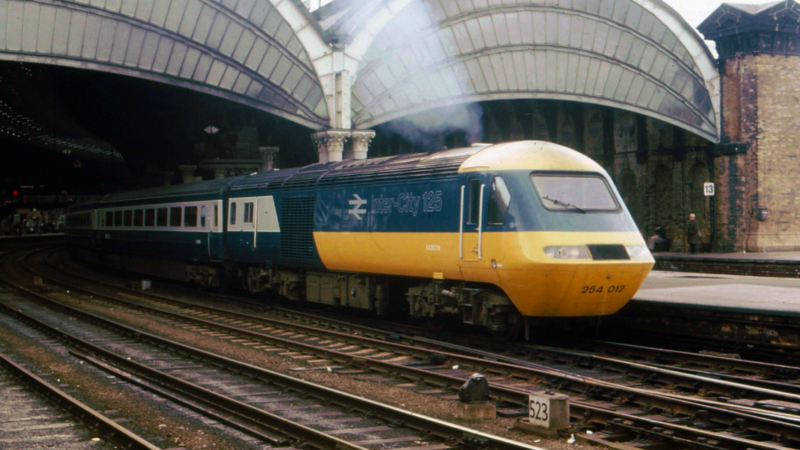Their reforms will take us back twenty years to the disastrous Railtrack era where dodgy contractors put profit before safety, leading to several major rail crashes.

Network Rail will act on a contentious new report that recommends bringing private companies and competition into managing Britain’s railway infrastructure. The disasters of the Railtrack era seem to have been completely forgotten, writes Luke Chester.
Network Rail, the national body that runs Britain’s railway infrastructure, yesterday announced they were adopting ‘sweeping’ reforms contained within the Hansford Report that would bring private companies in to run many of their services.
The reforms will ‘encourage innovation and reduce costs’ by bringing in ‘third-party project champions’ to work on railway projects — don’t let the terms bore you to death as they’re meant to — this is a serious threat to rail safety.
These reforms will ‘unlock new sources of funding because potential investors will have choices over who delivers projects for them’, reads one media report.
So, we’re going back to an era where railway maintenance is run by private companies whose main aim is maximising their investment. What could possibly go wrong?
What Network Rail are announcing is that we’re going back to the Railtrack era, where a private profit-making company with shareholders was put in charge of looking after Britain’s railways.
Railtrack’s ten-year reign from the early nineties to early 2000s saw private contractors brought in to maintain the track and run the signalling – their shoddy work and poor safety standards, driven by profit-making, led to some of the biggest rail disasters in British history.
In October 1999 for example, 31 people were killed at Ladbroke Grove when a Great Western mainline train derailed – Railtrack were criticised for failing to properly supervise their contractors who carried out the safety work on the line.
Railtrack operated a dangerous culture: prioritising profit over safety, inadequately maintaining their assets leading to deterioration, and failing to properly supervise the firms working under them.
The Hatfiled rail crash in 2000 that killed four people was the defining moment for Railtrack’s demise: an inquiry found the track had buckled because it hadn’t been properly maintained by Railtrack’s contractors.
After a series of disasters including Hatfield, public confidence was so shaken in Railtrack that the company went into administration.
The government helped transfer railway ownership and maintenance to a new not-for-profit body, which was fully nationalised in 2014: Network Rail.
By bringing its services back in-house, Network Rail quickly gained a reputation for safety and efficiency, and, as TSSA General Secretary Manuel Cortes says:
“Britain now has one of the best rail safety records in the world. The new proposals accepted by Network Rail jeopardise this.”
It’s a cruel irony that the body that remedied the failures of Railtrack is now recommending it essentially sell itself off in a Railtrack-like fashion.
The only real explanation is that National Rail bosses are more concerned with defending their overinflated salaries by going along with these Tory recommended reforms than standing up for what is right for our railway – a vertically integrated, fully nationalised model.
They are, quite literally, on the gravy train. For the rest of us, we can only hope that our next train journey finishes at a station, not in a coffin.
Privatisation of the train operators has led to higher costs for the taxpayer, worse services, higher fares and an increasingly complex employment structure caused by the legacy of fragmentation. We can’t let this also happen with the infrastructure.
Luke Chester works for the TSSA. He tweets here.
To reach hundreds of thousands of new readers and to make the biggest impact we can in the next general election, we need to grow our donor base substantially.
That's why in 2024, we are seeking to generate 150 additional regular donors to support Left Foot Forward's work.
We still need another 124 people to donate to hit the target. You can help. Donate today.




4 Responses to “Network Rail is flogging itself off to private firms – we can’t let it happen”
Kevin Rudeforth
Seems to me that it is all about making sure re-nationalisation becomes just that little bit more difficult / complicated (and expensive) to do.
John Boler
“The disasters of the Railtrack era seem to have been completely forgotten, writes Luke Chester.” More likely, the deplorable service under the nationalised British Rail has been completely forgotten by Luke Chester or, more likely, he is not old enough to have had to suffer it.
RobD
Well I lived and worked through the 70s and 80s using the nationalised BR and it was a reliable and much cheaper service AND it ran on Boxing Day which most of the rail system these days never does.
ad
RobD, it is curious that so many fewer people used the “more reliable and cheaper” British Rail than the present system. Anyway, I cannot say that Networks Rails fiasco with electrification has given me any great confidence in it.